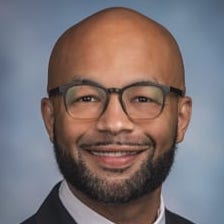 Much has been written about the disintegration of the traditional family structure in the African American community and the struggles of single parents in raising their children. But a new study led by Antonius Skipper, an assistant professor of gerontology at Georgia State University, focuses on factors that lead to successful Black marriages.
Much has been written about the disintegration of the traditional family structure in the African American community and the struggles of single parents in raising their children. But a new study led by Antonius Skipper, an assistant professor of gerontology at Georgia State University, focuses on factors that lead to successful Black marriages.
The researchers concluded that cultivating open communication, including the ability to have uncomfortable conversations, was an important skill for successful couples. Strong couples also tended to have a flexible view of the role they needed to play at different points in their relationship. For example, the researchers found that in the couples they studied, husbands and wives might shift the balance of household duties and breadwinner status over time, depending on health or job-market challenges. As for money, the study found it did not matter who managed the money as long as the husband and wife were in agreement, and “financial agreement may be more important to marital stability than financial comfort.”
“The historical emphasis on the deficits of Black families have contributed to a very limited understanding of strong Black couples,” Dr. Skipper said. “When paired with systemic barriers to marriage and sometimes unrealistic desires in a marital partner, many young Blacks have grown to see marriage as unattainable.
“The lessons from the couples we’ve interviewed teach us that many Black couples overcome the same issues that have torn others apart. In overcoming, these Black couples grow closer to the marital benefits that were denied to Blacks for centuries, such as generational wealth and escaping poverty.”
Dr. Skipper holds bachelor’s and master’s degrees from Georgia State University. He earned a second master’s degree and a Ph.D. at Louisiana State University.
The full study, “Black Marriages Matter: Wisdom and Advice From Happily Married Black Couples,” was published in the December Issue of the journal Family Relations. It may be accessed here.


I was not surprised at the findings made. I live in the UK and can relate to the behaviours, as some of the same traits are identifiable here in the approach to the concept of marriage and the continuous work required to maintain it.
Thank you for researching into our culture as this will enable many to step back and re-evaluate themselves and the relationship. Looking forward it hopefully will change the mindset of the generations to follow in addressing such issues to elevate the concept of marriage and the foundations on which it is meant to stand on in a positive, healthy, fruitful, and constructive manner.